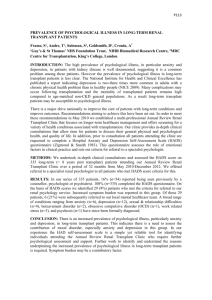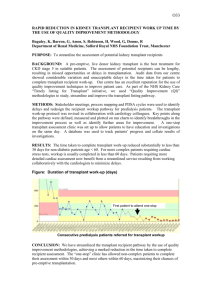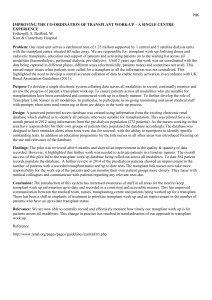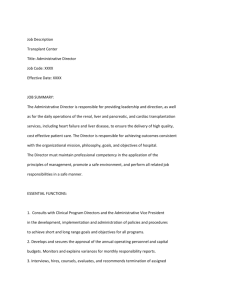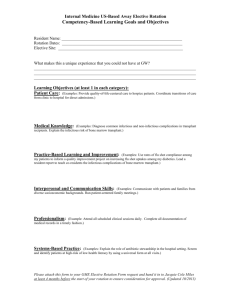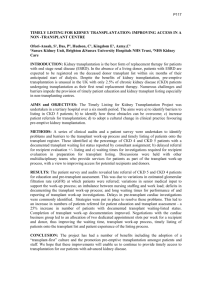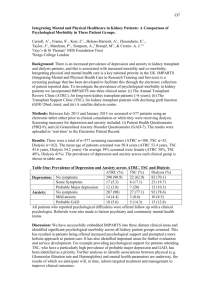Psychological issues faced by patients being worked up for kidney
advertisement
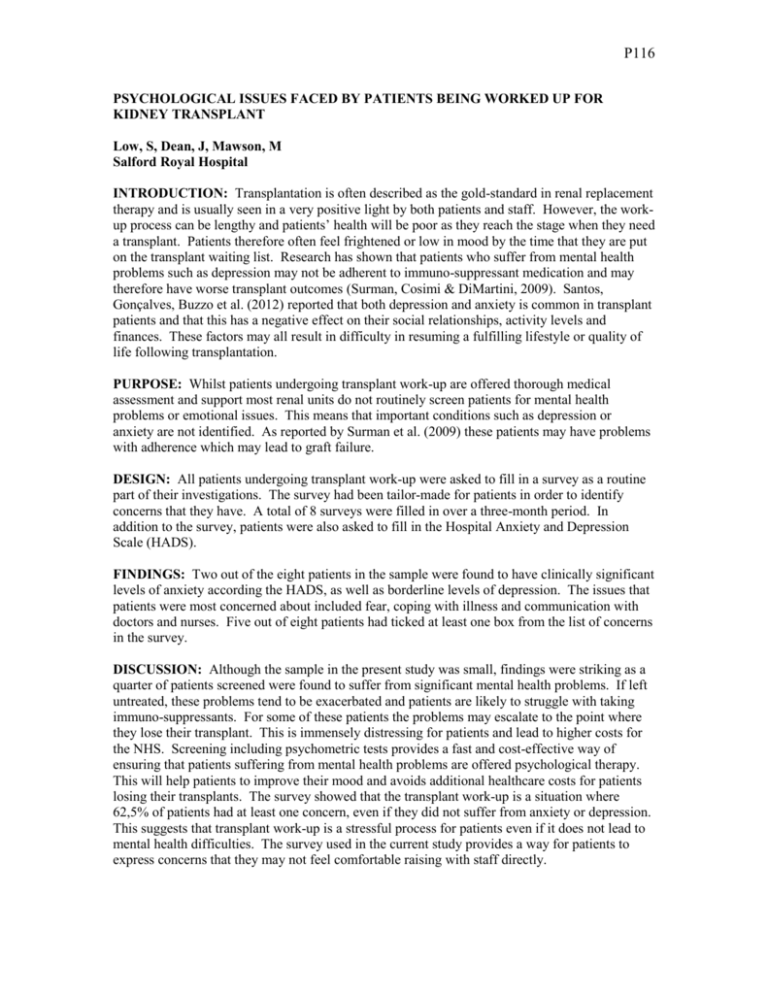
P116 PSYCHOLOGICAL ISSUES FACED BY PATIENTS BEING WORKED UP FOR KIDNEY TRANSPLANT Low, S, Dean, J, Mawson, M Salford Royal Hospital INTRODUCTION: Transplantation is often described as the gold-standard in renal replacement therapy and is usually seen in a very positive light by both patients and staff. However, the workup process can be lengthy and patients’ health will be poor as they reach the stage when they need a transplant. Patients therefore often feel frightened or low in mood by the time that they are put on the transplant waiting list. Research has shown that patients who suffer from mental health problems such as depression may not be adherent to immuno-suppressant medication and may therefore have worse transplant outcomes (Surman, Cosimi & DiMartini, 2009). Santos, Gonçalves, Buzzo et al. (2012) reported that both depression and anxiety is common in transplant patients and that this has a negative effect on their social relationships, activity levels and finances. These factors may all result in difficulty in resuming a fulfilling lifestyle or quality of life following transplantation. PURPOSE: Whilst patients undergoing transplant work-up are offered thorough medical assessment and support most renal units do not routinely screen patients for mental health problems or emotional issues. This means that important conditions such as depression or anxiety are not identified. As reported by Surman et al. (2009) these patients may have problems with adherence which may lead to graft failure. DESIGN: All patients undergoing transplant work-up were asked to fill in a survey as a routine part of their investigations. The survey had been tailor-made for patients in order to identify concerns that they have. A total of 8 surveys were filled in over a three-month period. In addition to the survey, patients were also asked to fill in the Hospital Anxiety and Depression Scale (HADS). FINDINGS: Two out of the eight patients in the sample were found to have clinically significant levels of anxiety according the HADS, as well as borderline levels of depression. The issues that patients were most concerned about included fear, coping with illness and communication with doctors and nurses. Five out of eight patients had ticked at least one box from the list of concerns in the survey. DISCUSSION: Although the sample in the present study was small, findings were striking as a quarter of patients screened were found to suffer from significant mental health problems. If left untreated, these problems tend to be exacerbated and patients are likely to struggle with taking immuno-suppressants. For some of these patients the problems may escalate to the point where they lose their transplant. This is immensely distressing for patients and lead to higher costs for the NHS. Screening including psychometric tests provides a fast and cost-effective way of ensuring that patients suffering from mental health problems are offered psychological therapy. This will help patients to improve their mood and avoids additional healthcare costs for patients losing their transplants. The survey showed that the transplant work-up is a situation where 62,5% of patients had at least one concern, even if they did not suffer from anxiety or depression. This suggests that transplant work-up is a stressful process for patients even if it does not lead to mental health difficulties. The survey used in the current study provides a way for patients to express concerns that they may not feel comfortable raising with staff directly.
